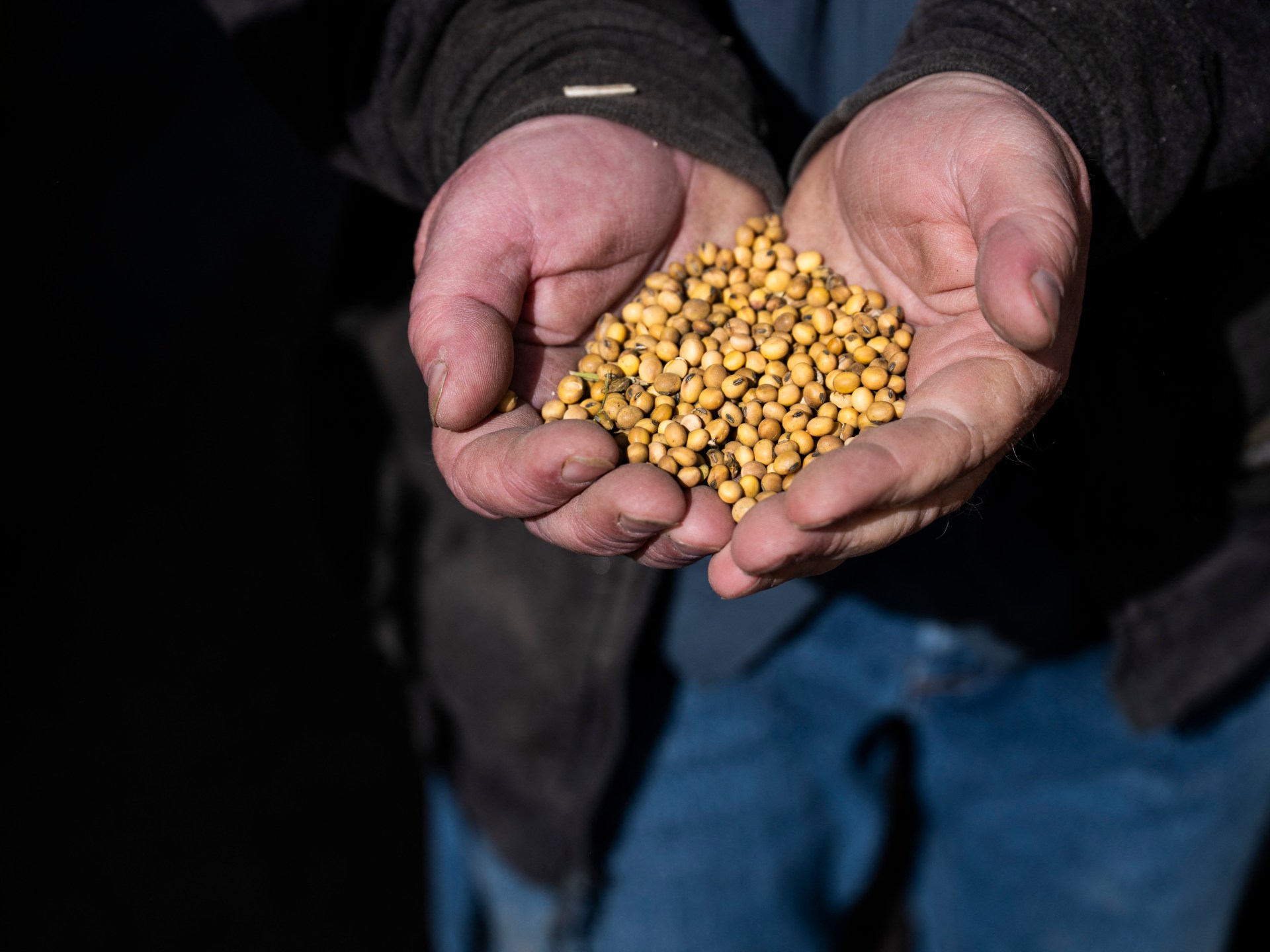The United States soya bean harvest is under way, and in rural Maryland, farmer Travis Hutchison cracks open a pod to show that the field is nearly dry enough for reaping.
But a decent yield is not enough to secure his income this year, with China – once the biggest buyer of US soya bean exports – halting orders amid a trade dispute triggered by President Donald Trump’s aggressive tariffs.
Soya bean prices “are really depressed because of the trade war”, Hutchison told the AFP news agency.
“I wasn’t against the president trying it, because I think we needed better trade deals,” added the 54-year-old of Trump’s policies. “I was hoping it would get resolved sooner.”
The world’s second-biggest economy bought more than half of the $24.5bn US soya bean exports in 2024. But exports to China have fallen by more than 50 percent in value this year, as Chinese buyers have held off on new orders.
Due to lower demand, soya bean prices are down about 40 percent from three years ago.
After Trump slapped tariffs on Chinese products in his second presidency, Beijing’s counter-duties on US soya beans have risen to 20 percent.
This makes them “prohibitively more expensive” than exports from South America, where US farmers face growing competition, said the American Soybean Association (ASA).
Last month, Argentina suspended its export tax on key crops like soya beans, making them more attractive to Chinese buyers.
Trump pledged to tap tariff revenues to help US farmers but has not provided details.
On Friday, the US president threatened additional 100 percent tariffs on China and to scrap talks with Chinese leader Xi Jinping over Beijing’s rare earth industry export curbs.
“These latest developments are deeply disappointing at a moment when soya bean farmers are facing an ever-growing financial crisis,” said ASA President Caleb Ragland.
ASA chief economist Scott Gerlt warned the situation is especially harsh in Midwestern states like North and South Dakota.
“This year’s going to be a very, very tough year,” farmer David Burrier, based in Union Bridge, Maryland, told AFP. “Forty percent of our acres are probably going to be breakeven or under breakeven.”
Burrier said it would be a “four-alarm fire” if China stopped soya bean purchases for good.
From 2018 to 2019, retaliatory tariffs caused more than $27bn in US agriculture export losses. The government provided $23bn to help farmers hit by trade disputes.
But they enter this trade war under greater financial stress, Gerlt said.
Crop revenues are lower, yet costs for everything from fertilisers to equipment have ballooned as Trump’s new tariffs bite.
“Getting parts to fix your combines and your planters and everything is costing more because of the tariffs,” Hutchison said. “It’s going to affect our bottom line.”
US farm bankruptcies this year have surged about 50 percent from 2024, said Professor Chad Hart of Iowa State University.
Source: Aljazeera

Leave a Reply